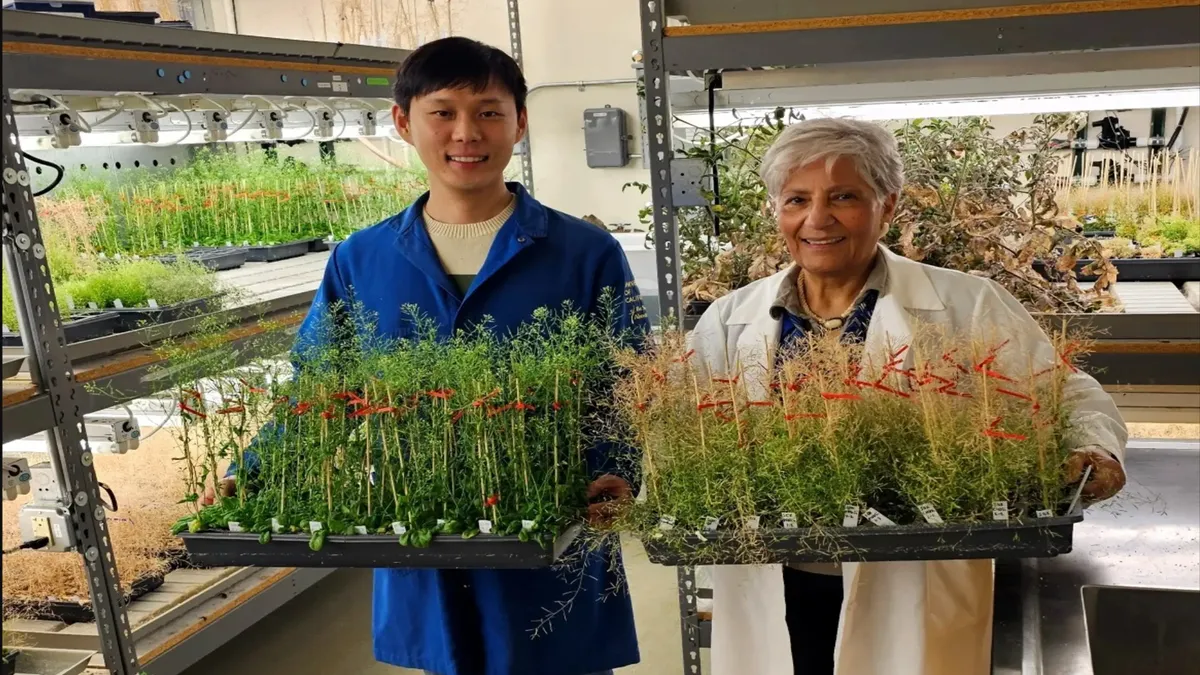Researchers at the University of California Riverside (UCR) have uncovered a groundbreaking connection between the Golgi apparatus, a cellular structure integral to protein processing, and the aging process. The study, focusing on plant cells, reveals the pivotal role of the Conserved Oligomeric Golgi (COG) protein in preserving cell longevity, opening new avenues for understanding aging in complex organisms.
Discovery in the Golgi Apparatus: A Surprise Revelation
In a surprising turn of events, scientists delving into plant stress responses stumbled upon a crucial aspect of the Golgi apparatus. Camillo Golgi, an Italian biologist, discovered this organelle in 1898, which functions as a vital post office within cells. Unlike its understated role in cellular function, the Golgi apparatus has now emerged as a potential game-changer in the quest to decipher the aging process.
COG Protein’s Role in Stress Response Unveiled
The study, initially focused on how thale cress (Arabidopsis thaliana) plant cells navigate stressors, uncovered the significant involvement of the Golgi apparatus and its COG protein in cell survival under external stress. The COG protein facilitates glycosylation, a critical process for cell function, involving the attachment of carbohydrates to proteins and lipids. This glycosylation process is indispensable for various biological functions, including protein folding and adaptive immune response.
Golgi Apparatus: The Cell’s Post Office
Lead author Heeseung Choi draws an analogy, describing the Golgi apparatus as the post office of the cell. It meticulously packages and dispatches proteins and lipids to their designated destinations within the cell. Any impairment in the Golgi apparatus can lead to cellular confusion, impacting overall cell health and functionality.
COG Protein: The Cellular Postal Worker
The researchers zeroed in on the COG protein. Often, scientists liken it to a postal worker managing small sac ‘envelopes’ containing crucial molecules within the cell. When they altered the COG protein in plants, making it unable to be produced naturally, the plants aged faster. They also became less resilient to stressors, like lack of light.
Implications for Human Aging and Health
Despite the apparent differences between plant and animal cells, all eukaryotic cells, including those in humans, possess a Golgi apparatus. Previous research has shown that malfunctions in the human COG complex can have a big impact. This affects essential biological roles, such as glycosylation and protein sorting. Dysregulation in Golgi glycosylation has also been implicated in cancer cell proliferation and disease progression.
Targeting Aging: Therapies for Age-Related Diseases
The researchers are now poised to investigate the impact of disrupting this pathway in human cells, exploring its potential association with aging and stress. The findings suggest that targeted therapies could enhance cell health, providing a shield against stressors that contribute to premature aging.
The study was published in the journal Nature Plants
Also, Read about ViewSonic VX2758-4K-PRO-2: A 27-inch Fast IPS Gaming Monitor with Dynamic Sync Technologies

